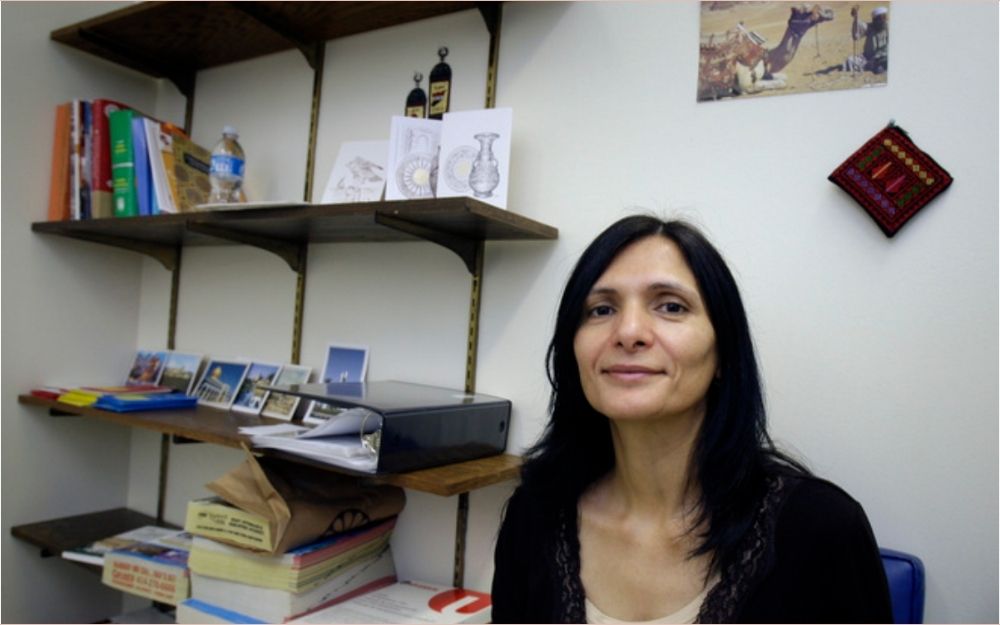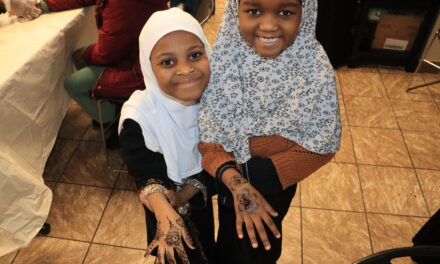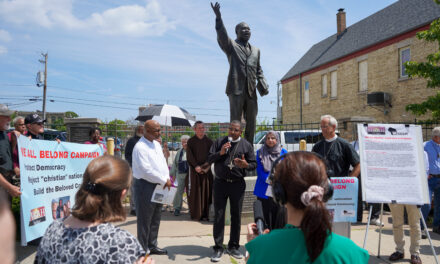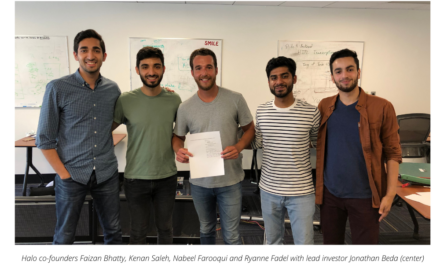Dr. Enaya Othman, founder of the Arab and Muslim Women’s Research and Resource Institute, created a conference, hosted at Marquette University, to deepen understanding around disability and its complexities.
One in four Americans live with a disability, according to the Centers for Disease Control and Prevention, yet “in the Muslim community, we don’t like to talk about it,” said Dr. Enaya Othman, founder of the Arab and Muslim Women’s Research and Resource Institute (AMWRRI), a historian and a Marquette University associate professor of Arabic language and cultures.
“I saw many from my community with family members with disabilities who don’t feel comfortable talking about it,” said the self-described “advocate for communities on the margins, including Muslim communities.”
“Disability is not merely a medical condition,” Othman said. “It is a lived human experience, not just a subject of the physical sciences.”
Just as conversations about race and ethnicity are evolving, perspectives on disability have evolved historically and theologically, as well as medically, she explained. Academics and activists also see it is an issue of social justice and equity.
Othman has organized an international conference that aims “to encourage open discussion and better understanding as well as to break down the stigma associated with disabilities,” the AMWRRI website says. In an interview with the Wisconsin Muslim Journal, Othman explained the importance of this conference for everyone and particularly urged Muslims to participate.
Marquette University and Arab and Muslim Women Resource and Research Institute’s 2022 Conference: Disability at the Intersection of History, Culture, Religion, Gender and Health will be held Thursday and Friday, March 3 and 4, at Marquette University and virtually. Registration is required. Tickets are free for members of the general public and the Marquette community. Sign language interpretation will be provided.
What to expect
The conference Disability at the Intersection of History, Culture, Religion, Gender and Health aims “to deepen our understanding of disability in all its complexities,” Othman said. “Class, race and gender also play a big role in understanding disability. That is why our conference talks about the intersection of all these categories together. It is a very complex issue.”
The conference brings together scholars from the sciences and humanities as well as advocates to explore disabilities through historical insight, cultural and religious meaning, representation and self-expression, legislation and intersection with other identity and minority groups, she said. Keynotes feature renowned speakers and panels include scholars from around the world.
Who will want to attend? Othman expects participation from academics from multiple disciplines, Muslim and non-Muslim scholars, activists and community members who want to learn more about how we perceive and treat people living with disabilities. It relates to everyone, she said.
Dr. Othman hopes many from Greater Milwaukee’s Muslim community will attend, she added. “I am hoping this conference will generate inclusive dialogues and interdisciplinary interactions between academia, community organizers, social and legal activists, health care service providers and Muslim leaders.”
Day One features keynote addresses and panels, live at Marquette University and virtual for those who can’t attend in person. A luncheon and evening reception will both feature Arabic food from Taqwa, a popular Milwaukee restaurant.
Day Two is all virtual, featuring concurrent panels.
Renowned keynote speakers share both knowledge and personal experience
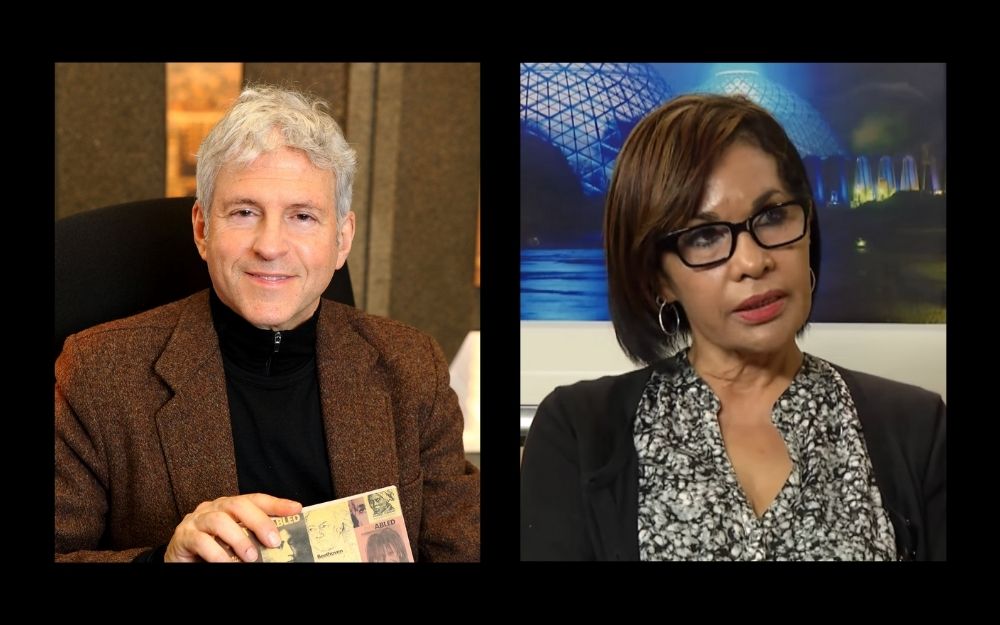
Keynote speakers (left to right): Dr. Lennard Davis, a distinguished scholar in disability studies, and disability advocate and playwright Brenda Wesley have both influenced current perceptions of disability.
In addition to scholars from across the globe, two keynote speakers bring insights from decades of professional and personal experience. Dr. Lennard Davis, University of Illinois Chicago Distinguished Professor of Liberal Arts and Science, “is very well known,” Othman said. She said she considers him to one of the founders of disability studies in the United States.
Davis speaks on his experience of growing up in a deaf household and has written extensively on disability and human rights, she added. “He talks about disability through history and integrates theoretical approaches with policies and law, and focuses on issues of disability, literary and cultural theory, genetics, race, identity and biocultural issues all together. I thought he would be the perfect person to speak.”
Ms. Brenda Wesley has been widely recognized for her advocacy. She served on the National Alliance on Mental Illness of Greater Milwaukee as the director of education and outreach for 14 years before starting her own mental health consulting agency.
“Brenda Wesley is a magnificent woman advocating for mental illness and rights, and caring for her own son,” Othman said. “I really wanted her to come talk about her advocacy, what she is doing on local and state level to have her voice heard.”
Wesley began her work in this field more than 20 years ago, when her son was diagnosed with schizophrenia, “a serious mental disorder which … may result in some combination of hallucinations, delusions and … behavior that impairs daily functioning,” according to the Mayo Clinic. Her experiences in seeking services for her son, a Black male, and “troubling signs of growing mental health challenges in the African American community,” led her to develop an African American outreach program in 2007 called “Access, Support & Knowledge (ASK).”
She is also a playwright who created a theatrical production about disability. Pieces: In My Own Voice is a play that depicts what it is like to live with a mental health diagnosis. It has been performed for schools and community organizations.
A labor of love
Four years ago, Dr. Othman set out “to really understand the issue of disability in Islam—how Islam as a religion and how Muslims belonging to the different cultures perceive ‘disability.’” Since then she explores what religious texts and Muslim scholars have said about disability, including mental illness, throughout history, and how policy and law are formed within a specific context to deal with individuals with disability.
“It became my passion,” Othman said. She launched AMWRRI’s Disabilities Digital Archive to collect data and oral histories from Muslims in Milwaukee, including people with differences of ability and their families, caregivers, imams, religious scholars, community organization leaders and health care/mental health professionals “to create a fuller picture” of disability “at the intersection of gender, culture, immigration and other forms of identity.”
“I really worked hard on this conference for the past three years, in recent months working on it 10 or 11 hours a week on top of my full-time schedule of classes, research, publications and mentoring students, but I am so happy doing it,” she said. It is a very fulfilling experience for me to organize a very needed conference.”
Part of her research funded by the Marquette Explorer Challenge Grant included the organization of a small symposium. “I felt we needed more than this,” she said. Instead, she put together “a conference that brings scholars, activists, people with disabilities and people who care about this issue together in open discussion.”
She received a “big response to a short call” for panelists, she said. “That can tell you how much a conference like this is really needed.”
Conference co-sponsors include: Milwaukee Muslim Women’s Coalition, Islamic Society of Milwaukee, Arab and Muslim Women’s Research and Resources and the following Marquette University sponsors: Languages, Literature and Cultures Department, History Department, Race and Indigenous Studies Program, Marquette University Libraries, Center for the Advancement of the Humanities, Office of Research and Sponsored Programs and Marquette Forum.
